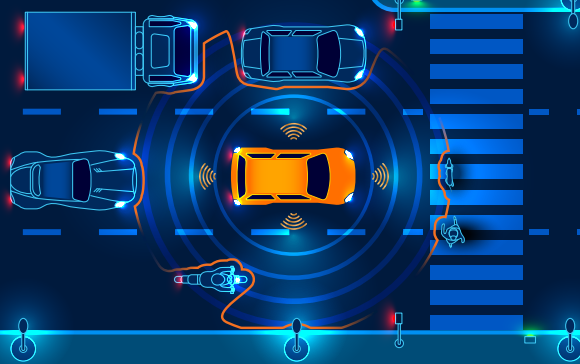The novel technology of Artificial Intelligence has taken over numerous human operations and is still doing it in the field of art and manufacturing.
Given the inclusion of technical cars with a touch of AI features, it is vital to highlight that AI not only adds up to the features of the car but is also used during its manufacturing and its related industry and supply chain. In terms of manufacturing, AI is currently helping human beings in developing the outer structure of automobiles, or more specifically defined as their exoskeletons. All of the robotics in the manufacturing of diverse cars is done by AI technology.

Image Source: eletimes.comn
So forth, it has been pointed out by numerous internationally based organizations that even though AI is currently responsible for the vehicles’ exoskeletons, it will soon manage whole automotive plants and industries in the future. Such automotive organizations partially consider this a major step towards further modernization and partially identify it as a problem for future growth of the human unemployment rate.

Image Source : tu-auto.com
Next up, AI technology pays heed to the transportation unit of the automotive industry. AI is presently serving a significant part in automated driving systems and is utilised extensively in contemporary cars. For instance, Tesla now offers level 2 automatic vehicles, and in the near future, the corporation intends to introduce level 4/5 driverless cars. AI can be employed to watch a driver’s eye to determine whether they are exhausted from driving for too long or not. Numerous AI technologies are used in the automotive industry to forecast potential forthcoming issues with engine efficiency, good battery life, etc. Additionally, there are numerous insurance companies linked with AI that provide consumers swift alternatives, such as insurance enrolment and claim resolution. Considering all of the stated, the impact of AI within the automotive industry grew over time, for it was scarce in 2015, as it was about 5% to 10%. In 2020, however, the influence of AI technology increased by 20% to 30%, whereas it is expected to grow increasingly by 98% to 99% impact by 2030. Furthermore, the automotive industry claims that by the year 2025, AI will be responsible for manufacturing and driving cars, as well as the construction of roads. Such is only expected to occur in the nations using AI technology most today, where some of the highlighted are the US, UK, China, Japan and Canada.


